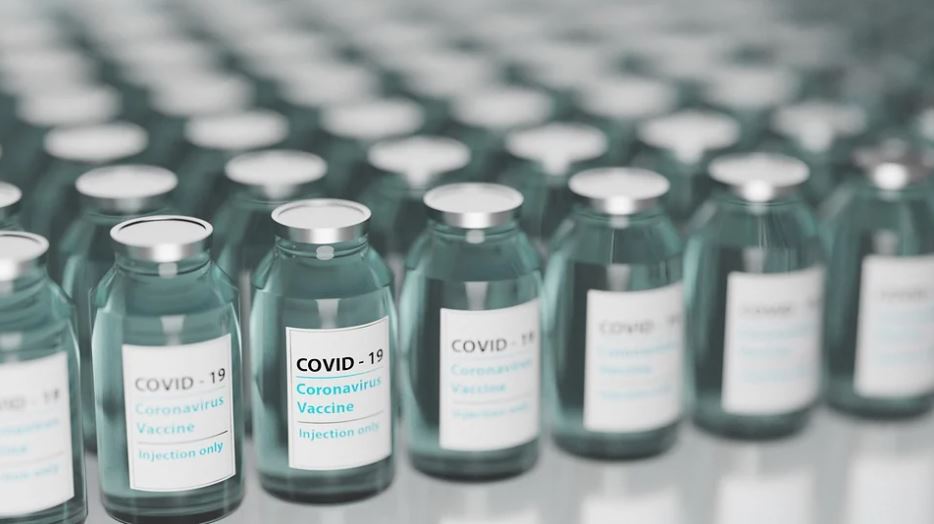In follow up to my recent blog post about the COVID-19 vaccine and diabetes, another question that has come up is whether people with autoimmune thyroid conditions should get the vaccination. As an endocrinologist, I have many patients with autoimmune thyroid conditions who are asking this question. Here, I have collected the currently available information and guidance on this topic.
The background: The Government of Canada has published recommendations for COVID-19 immunization based on guidance from NACI, which are rapidly changing based on evolving data and questions that arise. A couple of weeks ago, NACI advised that people with autoimmune conditions should not be routinely offered the COVID-19 vaccination until futher data is available. NACI has since revised their recommendation for people with autoimmune conditions:
A complete vaccine series with a currently authorized COVID-19 vaccine may be offered, if a risk assessment deems that the benefits of vaccination outweigh the potential risks for the individual and if informed consent includes discussion about the insufficient evidence.
Could there be any concern for people with autoimmune conditions? As noted by NACI:
Other applications of mRNA technologies have been for the treatment of cancer, which required an immune response directed against an individual’s cancer cells. This raised the theoretical concern that mRNA vaccines for infectious diseases would behave similarly, eliciting inflammation and possibly exacerbating existing autoimmune diseases. Current applications of mRNA technology for COVID-19 vaccines have been optimized to reduce this risk.
Although participants with autoimmune conditions who were not immunosuppressed were not excluded from trials, they constitute a very small proportion of trial participants and represent a very narrow range of autoimmune conditions.
The spectrum of autoimmune conditions is diverse. The relative degree of autoimmunity in individuals with autoimmune conditions is variable depending on the underlying condition, the severity and progression of disease and use of medications that impact immune function. Therefore, the balance of benefits and risks must be made on a case-by-case basis.
To address these concerns, the Canadian Society of Endocrinology and Metabolism (CSEM) has published a statement:
CSEM supports equitable access to COVID-19 vaccines for individuals with endocrine
conditions. Patients with type 1 diabetes, other autoimmune conditions, and
immunocompromised health should have a risk/benefit discussion with their health care
provider to make an informed decision. Some patients have multiple comorbidities that affect
their vaccine status and patients may need to discuss with the relevant specialist(s).
The Society for Endocrinology (United Kingdom) writes:
We are not aware of any specific side effects of a COVID-19 vaccine that would be unique to
people with endocrine conditions or diabetes mellitus, in the same way as there are no
concerns about other vaccines.
For people who are on immunosuppresive medication, including steroids for thyroid eye disease, there are additional factors to consider. One is that people who are immunosuppressed may be at higher risk for severe COVID infection, so one could argue that it may be especially important for this group to get vaccinated. On the other hand, if a person is immunosuppressed, it is possible that they may not generate as robust immunity when they get the COVID-19 vaccination. NACI notes:
Participants in the mRNA COVID-19 vaccine clinical trials only included individuals who were not immunosuppressed, and those not receiving immunosuppressive therapy during the trial. Immunocompromised persons, including individuals receiving immunosuppressant therapy, may have a diminished immune response to the vaccine.
In general, non-replicating vaccines may be administered to immunocompromised people because the antigens in the vaccine cannot replicate. However, the magnitude and duration of vaccine-induced immunity are often reduced. It is currently unknown whether immunocompromised individuals will be able to mount an immune response to mRNA vaccines.
NACI recommends:
A complete COVID-19 vaccine series may be offered to individuals who are immunosuppressed due to disease or treatment in the authorized age group in this population, if a risk assessment deems that the benefits outweigh the potential risks for the individual, and if informed consent includes discussion about the absence of evidence on the use of COVID-19 vaccine in this population.
BOTTOM LINE: We lack data to inform us on the use of the COVID-19 vaccine in people with autoimmune thyroid disease. However, there is no known reason why a person with autoimmune thyroid disease should not have the vaccine. At this time, because we don’t have data to definitively answer this question, it really boils down to having the conversation with your health care provider. I suspect that in most cases, health care providers will advise getting the vaccine, given that what we do know is the potentially serious (or lethal) health risk of getting a COVID-19 infection. This blog DOES NOT serve as individual medical guidance – be sure to talk to your health care provider. Also remember that the data, knowledge, and guidance on COVID-19 vaccination is changing rapidly – watch the NACI Recommendations page for updates.
Share this blog post using your favorite social media link below!
Follow me on twitter! @drsuepedersen
www.drsue.ca © 2021












